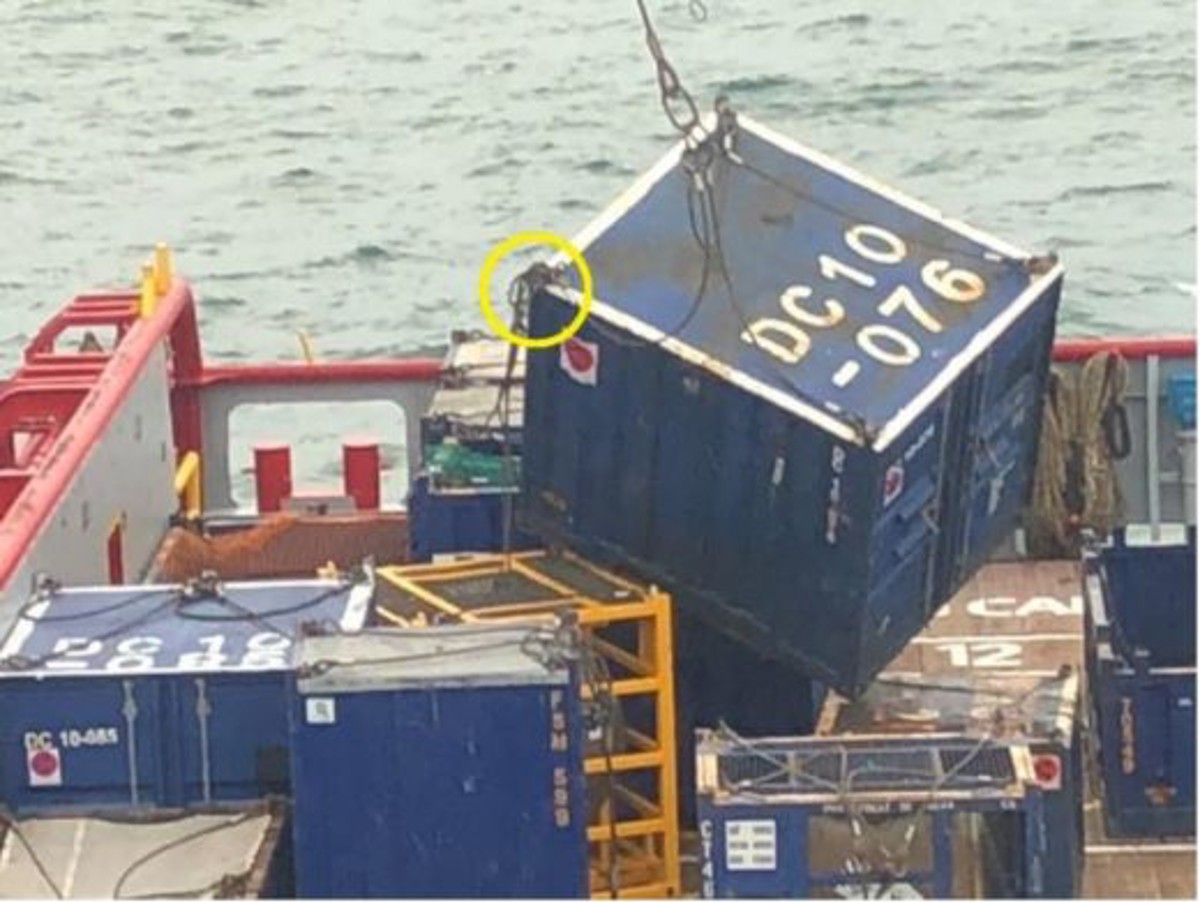Snagged lift during deck cargo operations
- Safety Flash
- Published on 2 October 2018
- Generated on 1 March 2026
- IMCA SF 23/18
- 2 minute read
Jump to:
The Marine Safety Forum (MSF) have published Safety Alert 18-19, in which a hoisted 10ft container became snagged on the bridle of a backloaded tote tank.
A ‘stop stop stop’ order was given and the crane operator immediately halted operation; the containers remained suspended 3m off the deck.

The crane operator attempted to free both containers, but the space on deck was too restricted, and he was forced to land the containers on top of a nearby tubular stack.
What were the causes?
An investigation revealed that:
- There was limited space to manoeuvre the containers due to lack of deck space.
- Whilst on location, the number of lifts declared for offload and backload changed significantly.
- The snagged bridle could not be seen from deck level or from above by the bridge team or the crane operator.
- The corners of the 10ft container were fitted with guiding pins, which prevented the snagged bridle from slipping free.
- The snagged bridle was not ‘tucked away’ or secured when the tank was backloaded.
What actions were taken?
- The deck crew removed the bridle once it was safe to do so.
- The containers were safely discharged, and the deck items were securely re-stowed.
- The charterer was informed in accordance with company procedures and this helped contribute to an effective and conclusive investigation taking place.
What recommendations were given?
- A toolbox talk (TBT) took place prior to the start of the operation – this TBT included the subject of checking for potential snag hazards. The vessel owner highlighted the need for all vessels to continue this practice and to continue searching for potential snag hazards both prior to and during operations.
- The deck crew were safe and clear of any risk during the operation. Crew members should remain in a safe place whilst lifting operations are taking place.
- The bridle of the tote tank could have been tucked away after disconnecting the hook – these actions would not have prevented the incident from taking place, but may help prevent future similar incidents.
- The bridge team should take time to research reporting requirements when going on hire and before a potential incident could occur.
The full MSF safety alert can be found on their website.
Related Safety Flashes
-
IMCA SF 15/17
15 June 2017
-
-
IMCA SF 22/16
1 September 2016
-
IMCA SF 05/12
8 June 2012
-
IMCA SF 02/12
29 February 2012
IMCA Safety Flashes summarise key safety matters and incidents, allowing lessons to be more easily learnt for the benefit of the entire offshore industry.
The effectiveness of the IMCA Safety Flash system depends on the industry sharing information and so avoiding repeat incidents. Incidents are classified according to IOGP's Life Saving Rules.
All information is anonymised or sanitised, as appropriate, and warnings for graphic content included where possible.
IMCA makes every effort to ensure both the accuracy and reliability of the information shared, but is not be liable for any guidance and/or recommendation and/or statement herein contained.
The information contained in this document does not fulfil or replace any individual's or Member's legal, regulatory or other duties or obligations in respect of their operations. Individuals and Members remain solely responsible for the safe, lawful and proper conduct of their operations.
Share your safety incidents with IMCA online. Sign-up to receive Safety Flashes straight to your email.